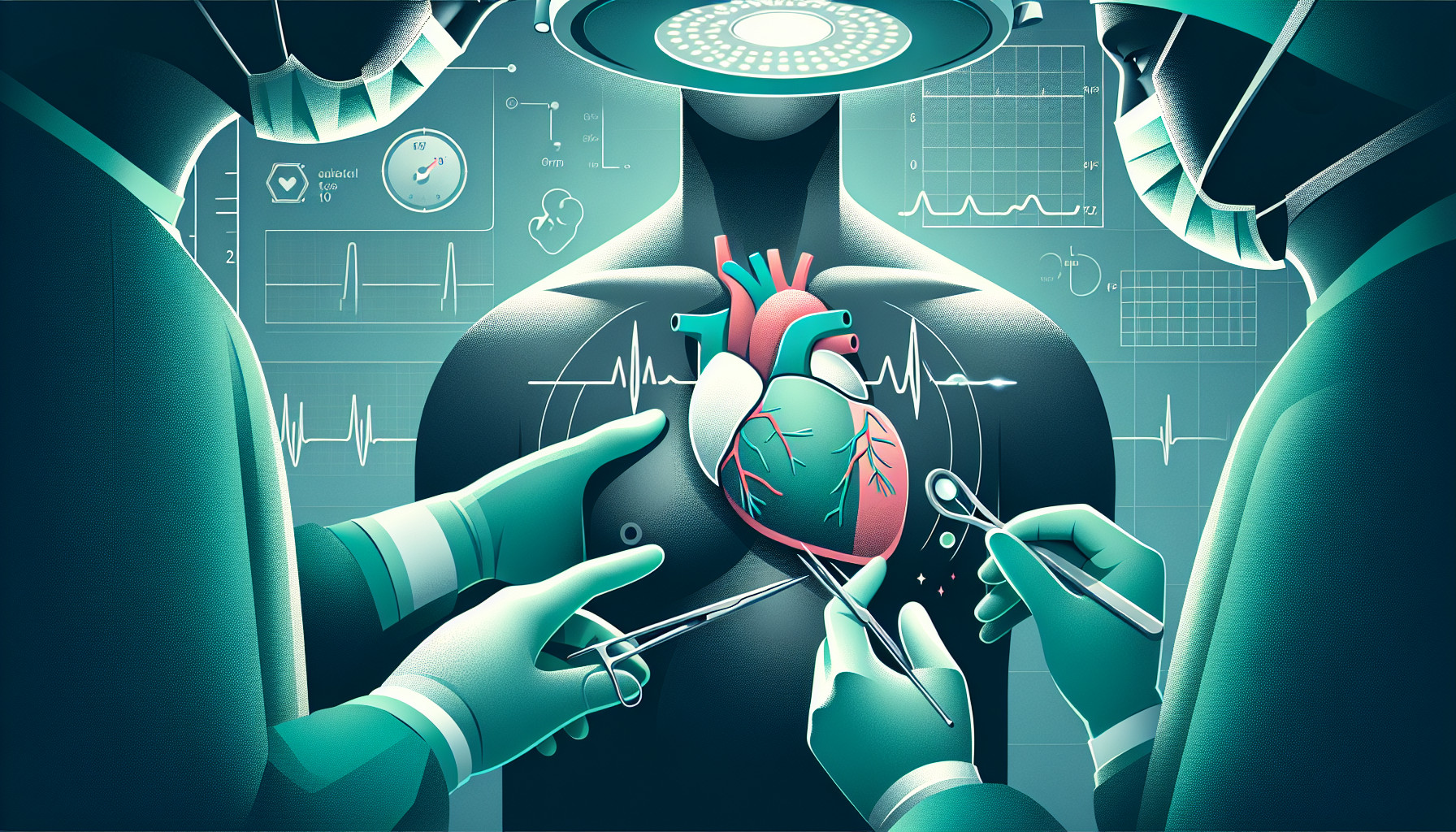Our Summary
This paper discusses recent advances in a non-surgical technique for repairing or replacing the mitral valve in the heart, a procedure known as transcatheter mitral valve repair (TMVr) and replacement (TMVR). The authors discuss two recent studies that had differing results regarding the use of a device known as the MitraClip, which led to new ideas and tools for assessing the effectiveness of the treatment. They point out that the experience of the doctor performing the procedure can greatly impact the outcome, and that careful analysis of the heart’s function can improve results. The paper also notes that several new studies are underway to explore alternative devices and techniques for TMVr, and that the results of early trials look promising. Despite the slow progress in the development of TMVR, the results of early trials of its devices are encouraging.
FAQs
- What is the transcatheter mitral valve repair and replacement (TMVR) procedure?
- How does the experience of the doctor performing the TMVR procedure impact the outcome?
- What are some of the new devices and techniques being explored for TMVR?
Doctor’s Tip
One helpful tip a doctor might give a patient undergoing mitral valve replacement is to follow post-operative care instructions carefully. This may include taking prescribed medications, attending follow-up appointments, participating in cardiac rehabilitation, and making lifestyle changes such as quitting smoking and maintaining a healthy diet and exercise routine. By following these recommendations, patients can optimize their recovery and improve long-term outcomes after mitral valve replacement surgery.
Suitable For
Patients who are typically recommended for mitral valve replacement are those who have severe mitral valve disease, such as mitral regurgitation or mitral stenosis, and are experiencing symptoms such as shortness of breath, fatigue, chest pain, or palpitations. These patients may have failed to respond to medications or other treatments, and their condition may be worsening over time. Additionally, patients who are at high risk for complications from traditional open-heart surgery may be good candidates for transcatheter mitral valve replacement. It is important for patients to undergo a thorough evaluation by a cardiologist and a cardiac surgeon to determine if they are suitable candidates for this procedure.
Timeline
Before mitral valve replacement:
- Patient experiences symptoms such as shortness of breath, fatigue, chest pain, and heart palpitations due to mitral valve disease.
- Patient undergoes diagnostic tests such as echocardiograms and cardiac catheterization to assess the severity of the valve disease.
- Patient is evaluated by a cardiac surgeon and cardiologist to determine if they are a candidate for mitral valve replacement.
- Patient undergoes pre-operative preparation including blood tests, imaging scans, and possibly medication adjustments.
After mitral valve replacement:
- Patient undergoes the mitral valve replacement procedure, which can be done through open-heart surgery or minimally invasive techniques.
- Patient is closely monitored in the intensive care unit post-operatively to ensure the success of the procedure.
- Patient begins a rehabilitation program to regain strength and function after the surgery.
- Patient attends follow-up appointments with their healthcare team to monitor their recovery and adjust medications as needed.
- Patient gradually resumes daily activities and may notice improvements in their symptoms such as improved exercise tolerance and reduced risk of heart failure.
What to Ask Your Doctor
- What is the reason for recommending a mitral valve replacement?
- What are the risks and benefits of the procedure?
- What is the expected recovery time and outcome?
- Are there any alternative treatment options available?
- How experienced are you in performing mitral valve replacement procedures?
- What will the follow-up care plan look like?
- Are there any specific lifestyle changes or medications that will be necessary post-procedure?
- What are the potential complications or long-term effects to be aware of?
- Are there any specific tests or evaluations that need to be done before the procedure?
- Are there any ongoing clinical trials or new technologies that may be relevant to my case?
Reference
Authors: Kang JJH, Bozso SJ, El-Andari R, Adams C, Nagendran J. Journal: Curr Opin Cardiol. 2021 Mar 1;36(2):163-171. doi: 10.1097/HCO.0000000000000803. PMID: 33044266
